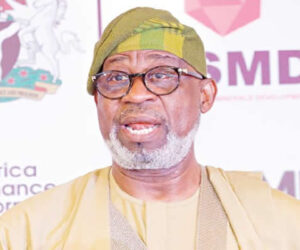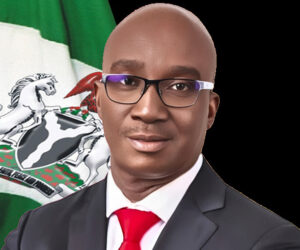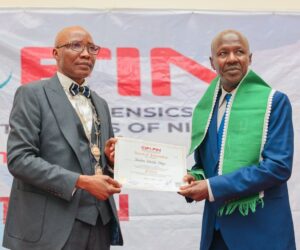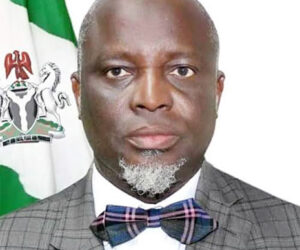The education sector was recently thrown into confusion following the revised policy for admission into tertiary institutions by the government, which made Mathematics not compulsory for admission of arts students. Though many Nigerians have kicked against it and the government has clarified on the policy, PAUL OKAH, in this report, states that the debates still linger on among stakeholders.
The issues
The Ministry of Education, on October 13, 2025, released the revised National Guidelines for Entry Requirements into Nigerian Tertiary Institutions, which in effect stated that Mathematics was no longer compulsory for admission of arts and humanities students. The publication of the policy on October 14 has stirred the hornet’s nest as Nigerians, especially stakeholders in the education sector, criticised the ministry on the policy.
However, following the backlash from Nigerians, the education ministry created confusion by issuing another statement, with the minister, Dr. Maruf Tunji Alausa, literally saying, though students can sit for English and Mathematics exams, it is still not compulsory for arts and humanities students.
The controversial policy
An analysis of the policy shows that, for admission into universities, students are expected to possess a minimum of five credit passes in relevant subjects, including English Language, obtained in not more than two sittings. Mathematics is mandatory for science, technology, and social science courses (but implicitly not mandatory for arts and humanities).
Similarly, for admission into polytechnics (Ordinary National Diploma level), students are expected to possess a minimum of four credit passes in relevant subjects, including English Language for non-science courses and Mathematics for science-related programmes (with Mathematics not being mandatory for art courses). However, for Higher National Diploma level, students must possess a minimum of five credit passes in relevant subjects, including English Language and Mathematics.
“On the other hand, for Colleges of Education (National Certificate for Education level), students are expected to possess a minimum of four credit passes in relevant subjects, with English Language mandatory for Arts and Social Science courses, and Mathematics required for Science, Vocational, and Technical programmes. Colleges of Education (Bachelor of Education level), students are expected to possess a minimum of five credit passes, including English Language and Mathematics, as applicable to the course of study,” it stated.
According a statement signed by the Director of Press and Public Relations, Boriowo Folasade, the policy, driven by the Minister of Education, Dr. Maruf Tunji Alausa, “is a deliberate effort to expand access to tertiary education, creating opportunities for additional 250,000 to 300,000 additional students to be admitted in tertiary Institutions each year.”
“Dr. Alausa explains that the reform has become necessary after years of restricted access that left many qualified candidates unable to secure admission. Every year, over two million candidates sit for the Unified Tertiary Matriculation Examination (UTME), yet only about 700,000 gain admissions. This imbalance, he notes, is not due to a lack of ability but rather to outdated and overly stringent entry requirements that must give way to fairness and opportunity.
“The reform is a deliberate effort to expand access to tertiary education, creating opportunities for 250,000 to 300,000 additional students to be admitted to our tertiary Institutions each year. It reflects a firm commitment to ensuring that every Nigerian youth has a fair chance to learn, grow, and succeed, putting the Renewed Hope Agenda into action,” the statement read.
Educationists, other stakeholders react
However, in an interview with Blueprint Weekend, Vice Principal (Academic), Supreme Dominion Famous School, Lekki, Lagos, Michael Otu, said in a world driven by data, figures, and logic, removing mathematics for arts students is like choosing silence in a world that speaks in numbers, saying the policy is detrimental and a response to the cries of those who have no passion for Mathematics and shouldn’t be allowed to stand.
He said: “Only a few countries such as Iceland, Australia, some parts of Spain, and in Africa, Kenya and South Africa, have ever tried to make Mathematics optional in their schools. Outside these few, Nigeria seems to be standing alone on this strange island – boldly taking Mathematics away from art students.
“One cannot help but wonder: are we building students who can stand shoulder to shoulder with their peers abroad, or are we grooming a generation that will find it difficult to fit in when they step into the global space? In a world driven by data, figures, and logic, removing Mathematics is like choosing silence in a world that speaks in numbers.
“We seem to have developed a dangerous habit of lowering the bar each time the climb becomes steep for some people. This policy, if truth be told, looks like a response to the cries of those who simply have no passion for mathematics. But passion should never dictate national education policy. Are we curing the fear of mathematics, or just covering it up to hide our failure to make it more relatable and enjoyable?
“Let us be honest, Mathematics has always been the most dreaded subject, and the teachers who handle it are often the least loved. But should we please our children simply because they dislike what challenges them? If we continue to remove every subject they find difficult, what kind of resilience are we raising? Life itself is full of equations – some easy, some hard. If this generation is taught to run from every tough subject, what will they do when life presents problems that have no ready-made formulas?”
Similarly, a scholar, Zaynab Bolanle Raji, said dropping maths for arts and humanities is a dangerous mistake, saying, “Mathematics is not the enemy nor a barrier, but the backbone of all disciplined thought and that to strip it from Arts and Humanities is to weaken the very mind we claim to educate.”
She said if the federal government keeps lowering standards in the name of mercy, “we will soon produce graduates who can write beautifully but reason poorly, and that is the greatest tragedy of all.”
She added: “The modern world runs on data, logic, and precision. From linguistics to digital communication, translation studies, and media analysis, scholars who can’t interpret numbers or apply logical reasoning will be left behind. Meanwhile, disciplines once rooted in rich critical thinking will shrink into sentimental commentary, full of emotion, empty of evidence.”
On his part, a lecturer, Stephen Madu, said the policy is counterproductive and should be reconsidered. He said: “Too often, policy debates around education are reduced to access -particularly access to university degrees. While access is important, it must not come at the expense of foundational academic standards.
“The recent policy shift removing the requirement for a credit in Mathematics for certain university admissions appears to stem from such a narrow perspective. However, this approach risks undermining the very foundation of our education system and the quality of graduates we aim to produce.”
“Mathematics important in all aspects of life”
Also speaking with our reporter, a secondary school teacher in Gwarinpa, Abuja, Mrs Aisha Bello, said Mathematics is important in everyday’s life and should not be discarded for arts students.
“Trust me, you need mathematics in everything in life. You need it in the kitchen, farm, church, mosque, etc. If you saw that Hilda Baci video, where she was trying to convince her major sponsor on the feasibility of the cooking project, you will understand the importance of mathematics in everything.
“Therefore, I think it’s better retained for arts students, but their curriculum should just be like basic 6 curriculum. They don’t need the tough part of Mathematics. Their Mathematics should be very simplified. They shouldn’t remove Mathematics totally for arts students, instead there should be basic mathematics that will guide them in their daily life,” she said.
FG clarifies position
Following controversies that trailed the revised tertiary admission policy, Folasade, on Sunday, clarified that the new education policy does not exempt any candidate from English or Mathematics, but it rather introduces a more inclusive and flexible approach to tertiary admission requirements.
“The Minister of Education, Dr. Maruf Tunji Alausa, CON, explained that the reform promotes fairness and inclusiveness in tertiary education by ensuring that capable students are not denied admission due to deficiencies in non-core subjects.
“The streamlining of O-Level admission guidelines aims to modernise Nigeria’s education system and align it with global best practices. It allows institutions to admit candidates into specific programmes where credit passes in either English or Mathematics may not be compulsory, while still mandating that all students register and sit for both subjects.
“This reform supports the federal government’s vision of equitable access, inclusivity, and human capital development, broadening academic pathways and recognising diverse strengths among learners. English and Mathematics remain vital tools for communication, reasoning, and lifelong learning. The adjustment affects only admission criteria, not the requirement to take these subjects,” the statement read.
It is hoped that with the above clarification, stakeholders’ anger have been assuaged.








